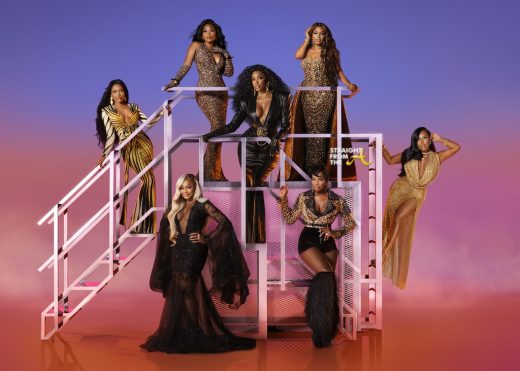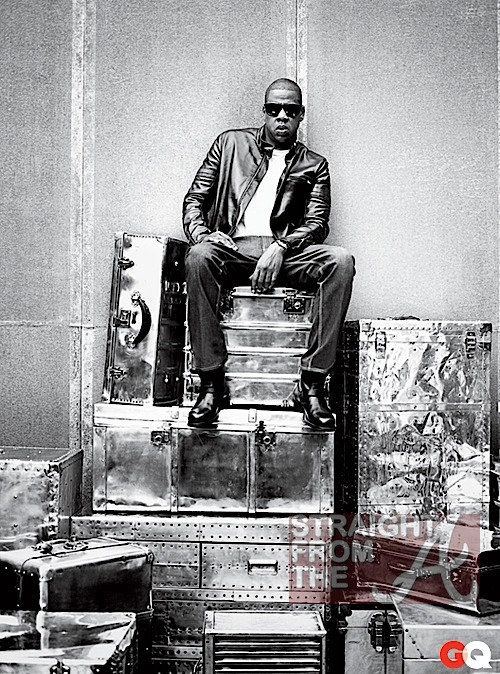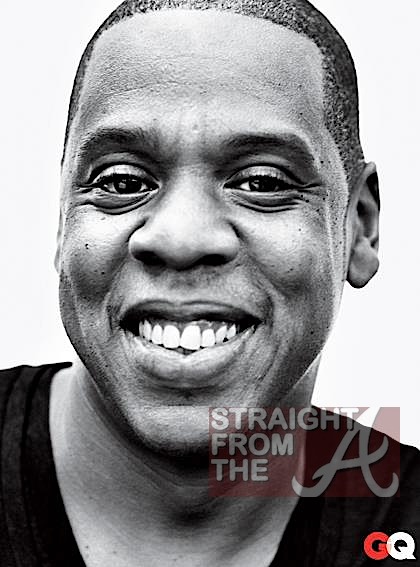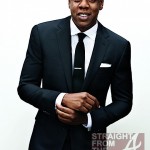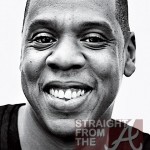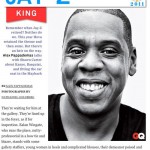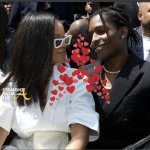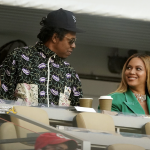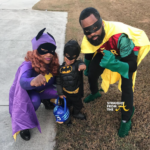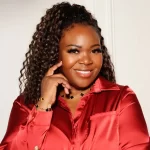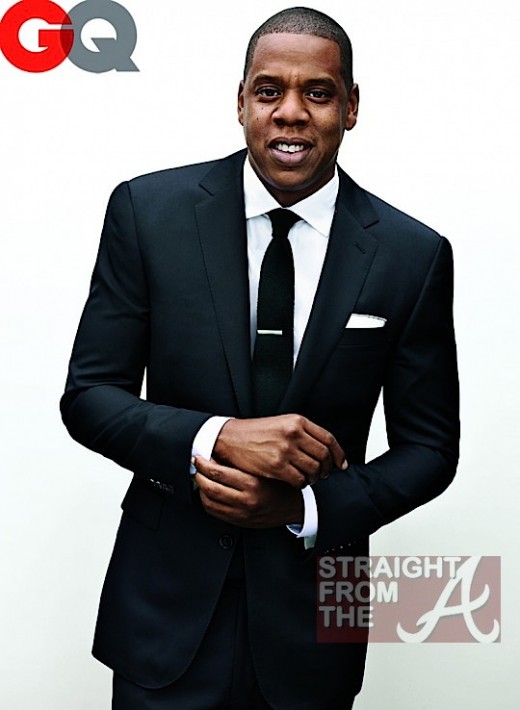
Jay was recently given the title of “King” by Gentlemen’s Quarterly and is listed amongst their 2011 Men of the Year. He sits down with GQ?s Alex Pappademas to dish about Fatherhood and more.
At 42, he remains, precedent-defyingly, a rapper people still care about, because he’s managed to frame all his achievements?his front-office stint at Def Jam, his ownership stake in the NBA franchise soon to be known as the Brooklyn Nets, the $150 million deal with LiveNation that’s said to rival Madonna’s, even the pop star he put a ring on?as we-shouldn’t-be-here victories for a kid from public housing, and for hip-hop, too.
More photos + and excerpt from Jay’s GQ feature below…
So now Jay’s going to be a father, and he’s thinking about his own father. He’s thinking about his roots in a nonmythological way, what he’s carried with him from Marcy to here, what he’s escaped. What’s relevant about Adnis Reeves, Jay’s dad, is not so much that he left when Jay was 11 but that he was present up until that time, long enough that when he left, it was worse than not having a father at all.
“If your dad died before you were born, yeah, it hurts?but it’s not like you had a connection with something that was real,” Jay says. “Not to say it’s any better?but to have that connection and then have it ripped away was, like, the worst. My dad was such a good dad that when he left, he left a huge scar. He was my superhero.”
Reeves loved all the things Jay-Z loves today?sports, food, and especially music. He had the best record collection in the neighborhood; the classic-soul-derived beats on Jay’s 2001 album The Blueprint are in part a tribute to the music that filled their house when Jay was young. But when his brother was murdered, Reeves imploded. Slipped into alcoholism and other forms of substance abuse.
“He was gone,” Jay says. “He was not himself.”
Jay’s mother, Gloria Carter, tried to push him to see his son; there were meetings scheduled that Reeves didn’t show up for. They didn’t see each other again until 2003.
“[I talked about] what it did to me, what it meant, asked him why. There was no real answer. There was nothing he could say, because there’s no excuse for that. There really isn’t. So there was nothing he could say to satisfy me, except to hear me out. And it was up to me to forgive and let it go.”
By then the doctors had told Reeves to quit drinking, and Reeves had kept on drinking, and a month after he and Jay had that conversation?which Jay wrote about on The Black Album‘s “Moment of Clarity”?he died.
All that was part of why Jay wanted to wait to have kids.
That promise, in “New Day,” that fear of repeating his father’s mistakes?it’s real. He knows, intellectually, that he’s not just going to spaz out and leave. “But I bet he didn’t believe he’d spaz out and leave either,” Jay shrugs.
He was rich enough to provide, years ago. But he wanted to be rich enough to be present?to leave rap alone for a while, if necessary, and not in a trumped-up pseudoretirement kind of way.
“Providing?that’s not love,” he says. “Being there?that’s more important. I mean, we see that. We see that with all these rich socialites. They’re crying out for attention; they’re hurting for love. I’m not being judgmental?I’m just making an observation. They’re crying out for the love that maybe they didn’t get at home, and they got everything. All the material things that they need and want. So we know that’s not the key.” READ MORE
So Jay is not as materialistic as he appears in his raps… are you surprised?
![Straight From The A [SFTA] – Atlanta Entertainment Industry Gossip & News - Atlanta's Most Reliable Source of Entertainment Gossip!](https://straightfromthea.com/wp-content/uploads/2015/04/sftalogo31.png)

